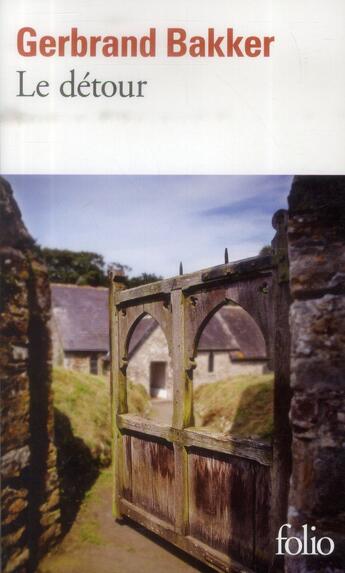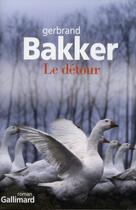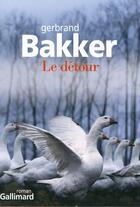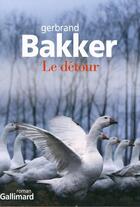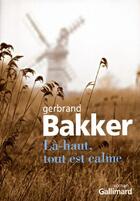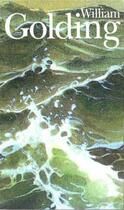Ach, writing a review of The Detour is not an easy task. Even if I finished it a while ago, I am still confused about it. No doubt, it is an unusual book which is not for everybody to read... I finished it, but did I enjoy it? I am not sure, but I would still say it was worth reading it. Perhaps...
Voir plus
Ach, writing a review of The Detour is not an easy task. Even if I finished it a while ago, I am still confused about it. No doubt, it is an unusual book which is not for everybody to read... I finished it, but did I enjoy it? I am not sure, but I would still say it was worth reading it. Perhaps because of this strangeness, which is present in the whole story and fascinated me until the last pages. Because it is something different from what we can expect reading the back cover summary.
We follow a Dutch woman, Emilie, who rents a farm in Wales after she left her husband. Slowly, we step in her new life, meeting geese, badgers, her favourite Emily Dickinson’s books, an unpleasant farmer, a curious baker, a chatty hairdresser, a strange doctor and a mysterious boy with his dog. Back in Amsterdam, the husband is investigating in order to find her with the help of a new policeman friend.
The plot is simple. Not a lot of action, not a lot of details, not a lot of explanations. The language is kept simple most of the time, be it in descriptions or in dialogues, and very sparse. The atmosphere is extremely strange. Who is Emilie? Why has she left her native country in order to rent a farm in the middle of nowhere? Who is this boy who stays with her for so long? And so on and so forth.
Gerbrand Bakker’s novel is full of symbolism and intertextual references, which can be confusing for the readers who cannot interpret it. I must admit I felt rather lost all along the story, as we never really obtain definite answers to the hundreds of questions we ask ourselves. The end gives us a few clues, but many mysteries subsist. I had expected something big, something that would explain it all, but I must admit I was a little disappointed, although it is a nice way to end the story.
The best word to qualify this book would be enigmatic. We follow Emilie in a strange universe and take part to her everyday routine without knowing the whys and hows. Although we get to know her from the first page to the last one, she remains mysterious and so do the other characters and their actions. As I said before, there is not much action, which illustrates perfectly Emilie’s loneliness and her need to find an aim in her days. Meeting other people is nevertheless inevitable, even in such a remote place and, often, everybody knows everybody, which can be rather surprising and embarrasing.
The Detour is no doubt a wonderful book for those who can enjoy this kind of surreal atmosphere. However, many readers will probably get misled by its appearance: this small novel with few pages and apparently simple writing style is actually not so easy to understand; you might end up with more questions than before you even opened it.



